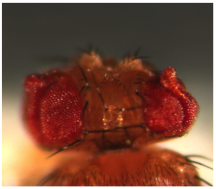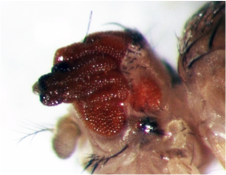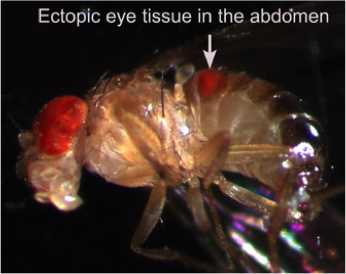
 The fundamental, conserved Notch signaling pathway controls a vast range of biological processes during development and homeostasis, including proliferation, differentiation, cell death, and stem cell maintenance. Notch pathway perturbations have also been implicated in a wide range of cancers. The interaction of Notch with other proteins and pathways in the cell plays a large role in determining the ultimate biological output of Notch signaling. To identify potential partners of Notch that have consequences for hyperplasia and oncogenesis, we have carried out an unbiased genome-wide screen to identify genes that affect Notch-induced proliferation, using the fruit fly Drosophila melanogaster. In addition to enhancing or suppressing a Notch-induced hyperproliferation phenotype, several of these interactions also caused a de novoectopic eye phenotype reminiscent of metastatic
The fundamental, conserved Notch signaling pathway controls a vast range of biological processes during development and homeostasis, including proliferation, differentiation, cell death, and stem cell maintenance. Notch pathway perturbations have also been implicated in a wide range of cancers. The interaction of Notch with other proteins and pathways in the cell plays a large role in determining the ultimate biological output of Notch signaling. To identify potential partners of Notch that have consequences for hyperplasia and oncogenesis, we have carried out an unbiased genome-wide screen to identify genes that affect Notch-induced proliferation, using the fruit fly Drosophila melanogaster. In addition to enhancing or suppressing a Notch-induced hyperproliferation phenotype, several of these interactions also caused a de novoectopic eye phenotype reminiscent of metastatic  tissue. After screening approximately 16,000 mutant lines, we have identified 360 unique Notch interactors, 206 of which have clear human orthologs.
tissue. After screening approximately 16,000 mutant lines, we have identified 360 unique Notch interactors, 206 of which have clear human orthologs.
We are currently exploring how several of these Notch interactors, including the essential developmental transcription factor Mef2and the proto-oncogene Src, interact mechanistically with Notch to influence downstream processes such as proliferation, metastasis, and cell death/survival.
Ho, DM, Pallavi, SK, Artavanis-Tsakonas, S. (2015). The Notch-mediated hyperplasia circuitry in Drosophila reveals a Src-JNK signaling axis. Elife. 4:e05996. doi: 10.7554/eLife.05996.
Pallavi, SK, Ho, DM, Hicks, C, Miele, L, Artavanis-Tsakonas, S. (2012). Notch and Mef2 synergize to promote proliferation and metastasis through JNK signal activation in Drosophila. EMBO J. 31(13):2895-907. doi: 10.1038/emboj.2012.129. Epub 2012 May 11.

